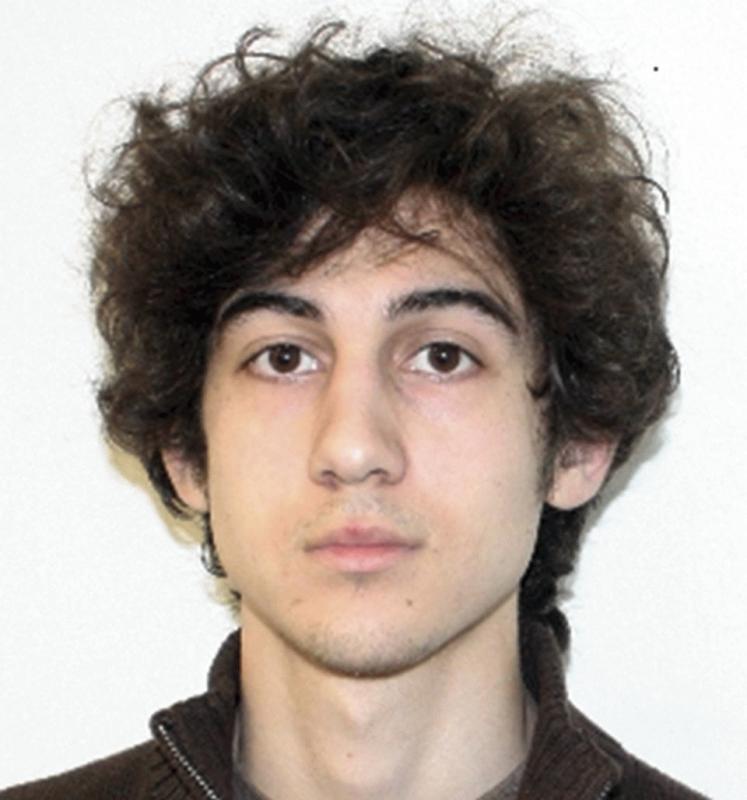It’s the day of final reckoning for Boston Marathon bomber Dzhokhar Tsarnaev, a day set aside for emotional victim impact statements and stern words from the judge.
The outcome of Wednesday morning’s federal sentencing hearing is a foregone conclusion. The decision to impose the death penalty belonged to the jury, so the hearing is a formality. Few surprises are expected.
The only lingering question is whether Tsarnaev might talk. And if he does, what could he possibly say?
The 21-year-old former college student is the first person to be handed a death sentence in a federal terrorism case since the attacks of September 11, 2001. He and his older brother, Tamerlan, who died while fleeing police, set off two bombs at the finish line of the Boston Marathon on April 15, 2013.
Two women and an 8-year-old boy were killed and more than 260 other people were injured. Many of those injuries will last a lifetime. The blasts left 17 people — all active, outdoorsy people — amputees. A fourth person, an MIT cop, was killed during the hunt for the Tsarnaevs.
Prosecutors say the Tsarnaev brothers set off homemade bombs — fireworks, BBs, nails and metal shards packed inside pressure cookers — to become martyrs to the cause of jihad. They also sought to punish Americans for the deaths of Muslims overseas.
Tsarnaev said nothing in court during his 10-week trial. Until now, his only public words of explanation exist in a rambling “manifesto” scrawled with a pencil on the sides of a boat. Punctuated by bullet holes and streaked with blood, the message was written sometime during the 18 hours Tsarnaev hid in the boat in a Watertown backyard after a gunbattle with police.
At the defense table, Tsarnaev fiddled with his bushy beard and tangle of curls, betraying no emotion as survivors and families of the dead told their heartrending stories. His face was blank as horrific images of the devastation he caused filled the screens inside the courtroom.
The only flicker of emotion came when he appeared to wipe a tear from his eye while an elderly aunt, brought from Russia by the defense, dissolved into tears and gasping sobs on the witness stand.
And so, Boston is left to wonder whether Tsarnaev is proud of what he did — or ashamed. Does he even care?
Sister Helen Prejean, a Catholic nun who has earned renown for her work with death row inmates, testified for the defense that Tsarnaev seemed “genuinely sorry.” She said he told her during one of several visits that the bombing victims didn’t deserve to suffer.
“He said it emphatically,” she told jurors, quoting Tsarnaev as saying, “Nobody deserves to suffer like they did.”
Defense attorney Judy Clarke chose her words carefully when she spoke about whether Tsarnaev felt remorse. She stopped short of telling jurors in her closing argument that he was sorry. All she’d say was he’d shown signs of “maturity” and was on the road to someday being remorseful.
In the end, only two of the 12 jurors found any glimmer of remorse.
Tsarnaev was convicted of 30 counts, and the jury determined that six specific crimes merited the death penalty. They involved Lingzi Lu, a 23-year-old graduate student from China, and Martin Richard, the 8-year-old boy. The two were killed by the bomb Tsarnaev set off in front of the Forum, a restaurant near the marathon finish line on Boylston Street. It literally tore them apart.
The jury did not find that he should be punished by the death penalty for the death of Krystle Campbell, who was killed by the bomb set off by his brother near Marathon Sports. And they did not condemn him to die for the execution-style shooting of MIT police officer Sean Collier a few days later. Those crimes will be punished by the only other alternative: life in prison without parole.
The U.S. Bureau of Prisons will later determine where Tsarnaev serves his sentence, federal prosecutors said.
He has been held under the tight restrictions usually reserved for terrorists; they include solitary confinement and no contact with other inmates or the outside world. Most prisoners subject to those restrictions serve their time at the so-called Supermax prison in Florence, Colorado. But the federal government’s death row is at the prison in Terre Haute, Indiana.
Tsarnaev’s case is likely to result in years of appeals, and no one can say with any certainty when he might be executed, if ever.
Robert Dunham, executive director of the Death Penalty Information Center, said he expects Tsarnaev’s appeals to last a decade or more.
“One can’t predict the likelihood that any given death sentence will be carried out,” Dunham said. “Statistically, in both federal and state death penalty cases, it is more likely that a sentence will be overturned than that it will be carried out.”
He added that it was difficult to predict the success of any appeal because of the secretive way in which the case was argued.
“Many of the pretrial proceedings took place under seal and some of the sidebars were under seal,” Dunham said. “We will not know until those transcripts are unsealed what other issues may be present in the case.”
Just 75 people have received federal death sentences since modern death penalty laws went into force in 1988, according to the Death Penalty Information Center’s website.
Only three federal death sentences have been carried out:
Timothy McVeigh was executed in June 2001 for the 1995 bombing of the Oklahoma City federal building.
Juan Raul Garza, a marijuana trafficker convicted of murdering three drug dealers in Texas, also was executed in June 2001.
Louis Jones, a black decorated Gulf War veteran, was executed in March 2003 for the kidnapping and murder of a young white female soldier in Texas.



